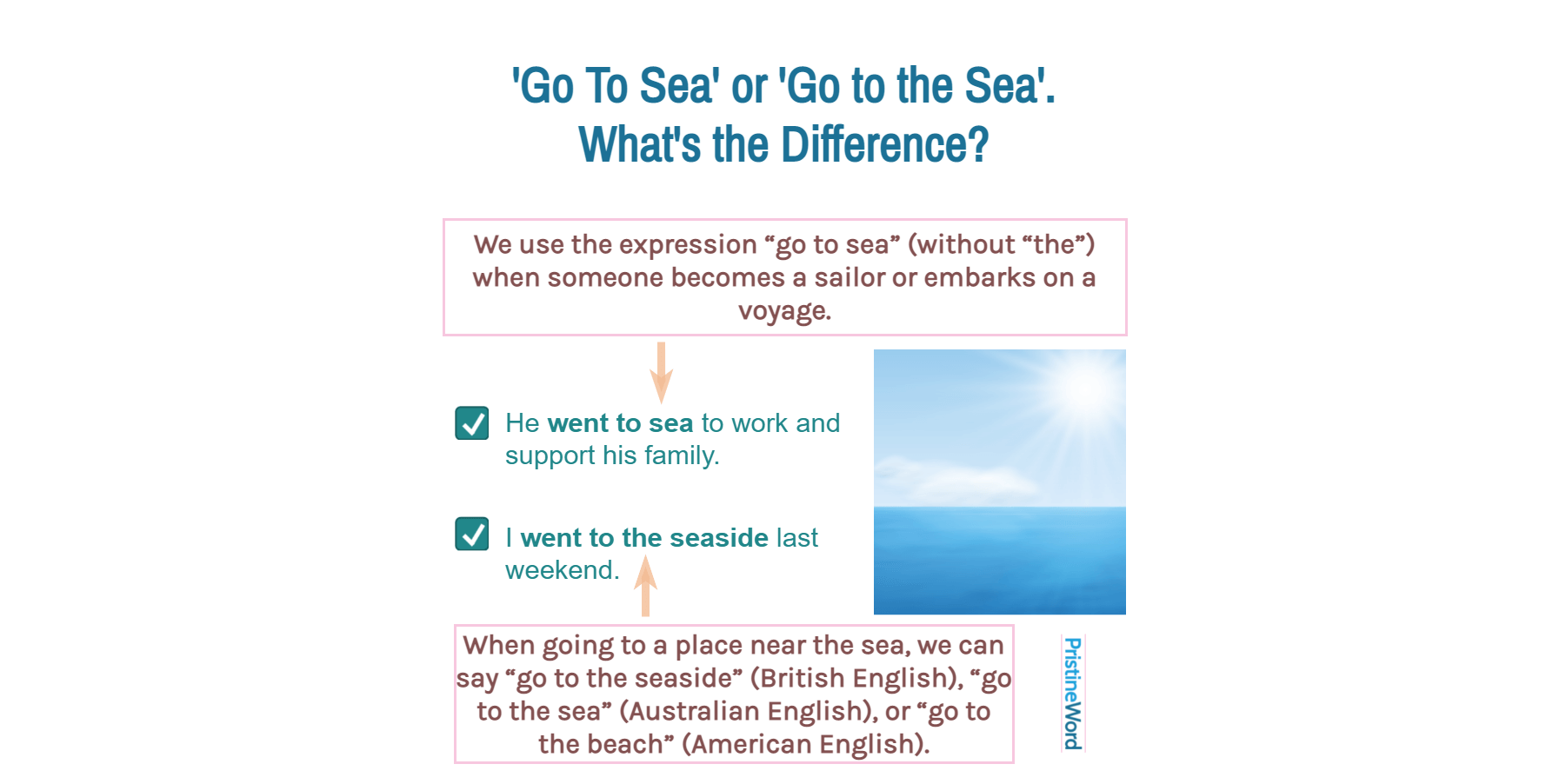We use the expression “go to sea” (without “the”) to say that someone becomes a sailor or embarks on a voyage.
We use the expression “go to sea” (without “the”) to say that someone becomes a sailor or embarks on a voyage.
He went to sea to work and support his family.
When going to a place near the sea, we can say “go to the seaside” (British English), “go to the sea” (Australian English), or “go to the beach” (American English and standard English).
I went to the seaside/sea/beach and had a fantastic time with my family.
1. Go to Sea
The expression “go to sea” (without the article “the”) means "become a sailor" or start a voyage (a journey by sea).
John went to sea when he was sixteen.
She went to sea and disappeared, but showed up ten years later.
We also omit the article when using the expression “be at sea” to say that someone is on a voyage.
Her father and brother work on a ship, so they are at sea most of the time.
In other contexts, however, we usually need to include the article "the".
Do you like to live near the sea?
Swimming in the sea provides many health benefits.
2. Go to the Sea and Go to the Seaside
British English speakers use the expression “go to the seaside” when referring to the areas or towns near the sea.
They went to the seaside last weekend.
They also use the phrase “at the seaside”.
We spent the day at the seaside.
Australian English speakers say “go to the sea” to mean the same thing.
We went to the sea and had a fantastic day.
Americans tend to use the phrase “go to the beach” instead.
My husband and I love going to the beach.

